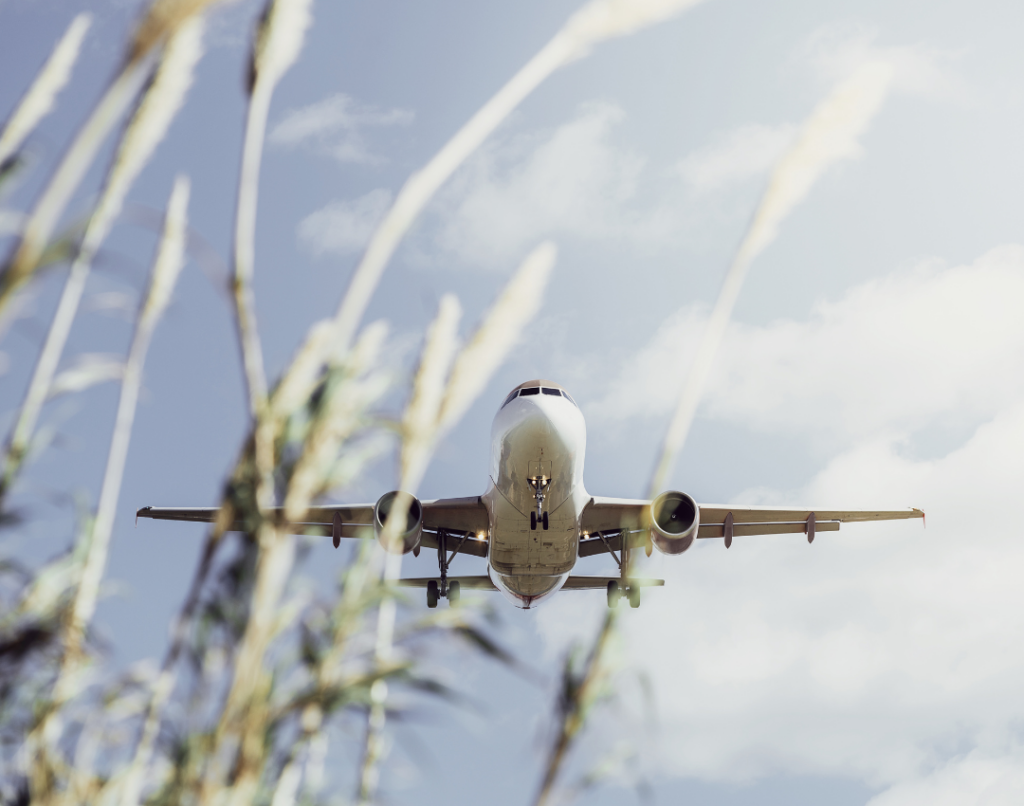Do you take into account sustainable practices across your travel supply chain when booking business travel or meetings and events? As companies increasingly work towards their Environmental, Social and Governance (ESG) goals, finding ways to make business travel and events more sustainable across the board is important for reducing emissions.
Reed & Mackay recently committed to becoming Net Zero across scopes 1, 2 and 3 by 2045. We recognise that achieving this as a business is a significant challenge, but we’re dedicated to taking it on.
If your company is also working hard towards meeting ESG targets and working towards becoming a Net Zero business, how do you find out if your suppliers prioritise sustainability too, particularly in your business travel and events programmes?
Here’s where you can find information to help you prepare for eco-friendly business trips and events.

Airlines working to reduce CO2 emissions
Airlines are working to reduce greenhouse gas emissions as they aim for Fly Net Zero by 2050.
Initiatives range from a commitment to purchase and fly with sustainable aviation fuel – as reported by European, US and Asia Pacific airlines – to creating lighter and more efficient fleets. Airlines are increasingly committing to practices such as dispensing with single-use plastic or upcycling and recycling employee uniforms. And ground facilities and airports are also taking responsibility to become more energy efficient in a number of ways.
Encouragingly, the UK government committed to extend the Advanced Fuels Fund by another year – an initiative that will support Sustainable Aviation Fuel (SAF) production – in the October 2024 budget. And, as Reed & Mackay partners with world-leading SAF producer Neste, our clients have the choice to buy SAF at scale and help reduce business travel’s environmental impact.
How do hotels highlight their sustainable practices?
Choosing eco-friendly hotels is an essential part of planning a sustainable business trip and plays a key part in reporting sustainable practices across your travel supply chain. While there are many sustainability standards hotels can sign up to, look out for specific details on their websites. Here, they should highlight if they’re using renewable energy across the property and report on their energy consumption. In addition, they should point to whether they use efficient water-recycling systems, local resources and eco-friendly suppliers.
The Global Sustainable Tourism Council offers recognised standards such as EarthCheck Certified, Green Growth 2050 and Green Key Global Eco-Rating. Also look out for certifications awarded by ISO 14001 or EcoVadis. And Reed & Mackay’s proprietary technology also labels Sabre’s Eco-Certified hotels. Each has been certified by a partner whose standards closely align with the Global Sustainable Tourism Council’s criteria.
In addition, the Cornell Hotel Sustainability Benchmarking Index from Cornell University in the US gives hotels the opportunity to benchmark energy, water and carbon performance against other hotels in the same climate zone, class or city.
Looking to centralise standardisation, the World Travel and Tourism Council (WTTC) and sustainability management and certification system Biosphere have teamed up to advance the industry’s sustainability standards. This means the WTTC’s Hotel Sustainability Basics verification and Biosphere’s methodology will be integrated to “create a comprehensive international framework for the sector, with a unified vision connected to the UN’s Sustainable Development Goals”.
Restaurants – sustainable accreditations
When dining in local restaurants on a business trip, ask about the sustainable practices they use across their travel supply chain. Does it use organic produce and/or local ingredients with easily traceable provenance? See if the restaurant has a policy to minimise food waste and whether it sources food from farms that use sustainable practices like saving water and using renewable energy.
Accreditations to look out for include The Sustainable Restaurant Association’s Food Made Good Standard, which is available worldwide, Fairtrade Certification and the Rainforest Alliance Certification.

Transport – the eco-friendly options
Sustainable business travel and events means encouraging public transport usage like trains, subway systems and buses at the destination you’re visiting. Book hotels close to public transportation or within walking distance to company offices, client locations or event venues. Many major cities also have bicycles or scooters available for rent.
Event venues practicing sustainability
Find out if the venue you’re booking is LEED-certified. The certification is used internationally to recognise “highly efficient and cost-saving green buildings, which offer environmental, social and governance benefits”.
Choose venues and hotels near the airport or easily accessible by public transport to decrease transport emissions. Alternatively, can delegates car share or can you book transfers to venues via electric buses?
Consider making an event as digital as possible, using the technology available at the venue. Other areas to take into account include whether the venue has a recycling and a food waste policy. Does its catering use locally sourced produce and offer reusable or biodegradable cutlery? And does it partner with any environmental initiatives?
Other questions to ask include whether the furniture is made of sustainable resources and are single-use plastics banned? Are event badges and lanyards recyclable? And does the supplier have dedicated staff on sustainable development, across all levels, with product knowledge?
Key to everything venues say they’re doing, enquire about how they’re measuring and reporting on their sustainable initiatives.
Find out more about how we’re making sustainable travel more accessible for clients.
Get in touch
Mail [email protected] to discuss all of your travel and event management needs.




